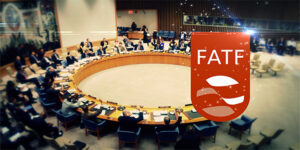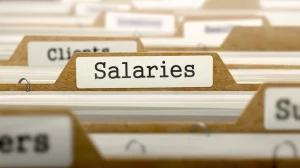

Minister of Finance and the Public Service
The Restructuring of Public Sector Compensation

LAST WEEK, the Houses of Parliament approved, by affirmative resolution, an order to suspend Jamaica’s fiscal rules for the initial period of this fiscal year ending March 31, 2021, consistent with the provisions of the Financial Audit and Administration Act.
Jamaica’s fiscal rules were given the force of law in 2010 and updated in 2014 to provide for an escape clause in times of crisis, among other amendments.
Embedded in this Fiscal Responsibility Framework is the objective of attaining a debt-GDP target of 60 per cent by 2027-28. This target date was originally set at fiscal year 2025-26, but, with the endorsement of the IMF and local stakeholders, this has been pushed back by two years, given the materially negative economic impact of the COVID-19 pandemic.
Furthermore, our Fiscal Responsibility Framework prescribes the minimum level of annual fiscal savings that is consistent with our debt-reduction objective, given prevailing economic parameters. It also provides limits on the aggregate level of public-sector wage expenditure as a ratio of GDP.
Under the framework, the circumstances that can trigger an escape are outside of the control of the Government. These events are a severe economic downturn, natural disaster, health and other disasters, and public emergencies.
Importantly, however, once triggered, the fiscal rule suspension can only be activated after an independent verification by the auditor general that the fiscal impact of the event exceeds the threshold of 1.5 per cent of GDP and after the Houses of Parliament approve, by affirmative resolution, an order for suspension.
Jamaica was declared a disaster area on account of the COVID-19 pandemic. This triggered the fiscal rule suspension.
The auditor general subsequently validated that the fiscal impact of the COVID-19 pandemic, which led to Jamaica being declared a disaster area, was above the threshold of 1.5 per cent of GDP. This validation was tabled in Parliament, along with supporting economic data provided by the Planning Institute of Jamaica (PIOJ) and the Ministry of Finance.
We need to suspend the fiscal rules for the following reasons:
(1) The COVID-19 pandemic has led to the need to deploy significant additional fiscal resources, primarily in the form of (a) social and economic support through the CARE Programme, (b) health expenditure on new personnel, equipment, and supplies, and (c) other critical expenditures, which together total $34 billion.
It will not be possible to accommodate these additional expenditures unless the fiscal rules are suspended.
(2) Economic activity will contract significantly this fiscal year as a result of the COVID-19 pandemic. The economic contraction is a consequence of the economic spillovers from actions that other countries have taken, as well as actions that we have had to take in Jamaica, to slow the spread of the coronavirus that leads to COVID-19. The expectation is that the economic contraction this fiscal year will be in the region of 5.1 per cent.
This anticipated shrinking of economic output means that the Government is likely to have much less revenue this year than originally planned. Estimates are that revenues will be lower by approximately $81 billion.
This loss of revenue means that it will neither be possible, practical, nor desirable to achieve the level of fiscal savings that the fiscal rules would otherwise imply.
For these reasons, the fiscal rules need to be suspended.
The journey towards the suspension of our fiscal rules has involved dialogue and consensus on the critical issues. I first mentioned fiscal rule suspension as a likely course of action in my closing Budget presentation on March 24. In my opening remarks during the tabling of the First Supplementary Estimates on May 13, I confirmed this direction and further proposed that we needed to extend the target date for attainment of our 60 per cent debt-GDP objective to fiscal year 2027-28.
In response to my remarks, the Opposition, also on May 13, voiced its support for both objectives: fiscal rule suspension and extension of the debt-reduction timeline by two years.
Discussions have been had with other stakeholders locally and internationally, including the IMF. ( The Gleaner was among the first local stakeholders to support a suspension of the fiscal rules and an extension of the debt-reduction timeline).
On approval of the disbursement of approximately US$520 million under the Rapid Financing Instrument, the executive board of the IMF endorsed Jamaica’s move to suspend our fiscal rules and to extend the 60 per cent debt target timeline by two years. Their report was published on May 18. Given how recently Jamaica emerged from successive Fund programmes, it was important for this report to be published before beginning the fiscal rule suspension process.
However, the avenue for the suspension of the fiscal rules did not exist.
Use of the ‘economic contraction’ trigger was not possible as the law is written in a manner that requires that the contraction has happened. In addition, the quarterly GDP contraction has to exceed two per cent to trigger the process.
Last week, the PIOJ projected a 1.7 per cent contraction for the quarter ending March 2020 and a 12 per cent to 14 per cent contraction for the quarter ending June 2020. The ‘economic contraction’ trigger would, therefore, be unavailable until the anticipated June 2020 contraction is measured and confirmed by STATIN, in about September 2020.
We, therefore, had to amend the FRL to create an avenue for suspension that was consistent with the principles that (i) the circumstances that can trigger an escape are outside of the control of the Government and (ii) activation of the suspension would still require independent verification of the fiscal impact by the auditor general. (The Government and Opposition disagreed on the urgency of this amendment.)
Other countries have had to amend their fiscal rules to allow for suspension in this unprecedented crisis.
In Panama, the National Assembly adopted new legislation to modify their fiscal responsibility law’s deficit limit for 2020, allowing for larger deviations under these COVID-19 circumstances.
Peru went even further. Instead of using their escape clause, the Peruvian government enacted new legislation to bypass the fiscal rule altogether. Presumably, the formal escape route would have included conditions for fiscal recovery measures post-suspension.
Many countries of the world do not have fiscal rules. For example, among CARICOM members, only two – Jamaica and Grenada – have fiscal rules in place.
However, most countries that have fiscal rules are suspending them due to the effects of COVID-19.
The European Union has activated the ‘general escape clause’ of its fiscal rules, which allows EU member states to undertake measures to address the impact of the pandemic. The escape clause will allow these measures to depart the budgetary restrictions that would normally apply under the EU fiscal framework.
In addition to the EU supranational escape clause, European countries have individually activated their own national escape clauses to allow for additional flexibility. Austria, Bulgaria, Croatia, the Czech Republic, Germany, Estonia, France, Greece, Italy, Lithuania, Latvia, Portugal, Romania, and Slovenia have all already activated their national escape clauses.
Closer home, Grenada, which had a public debt-GDP ratio of 60 per cent in 2019 and has been the fastest-growing Caribbean economy in recent years, announced plans to invoke the suspension provisions under their Fiscal Responsibility Law.
Panama and Peru were mentioned earlier. Costa Rica enacted a National Emergency Decree and is expected to activate the emergency escape clause to allow for a growth in expenditure higher than the allowed threshold for 2020.
In Honduras and Paraguay, governments have announced plans to trigger their fiscal rule escape clauses, allowing for increased spending and a larger deficit this year.
In Brazil, the government declared a state of “public calamity”, which allows for a relaxation of restrictions under their fiscal responsibility framework.
These are unprecedented times, here in Jamaica and around the world. We can be proud that Jamaica has an institutional framework that supports the sustainability of our public finances.
We can be even prouder that this framework requires a formal and transparent process for its temporary relaxation in times of crisis.
Published in the Gleaner – June 7, 2020
Dr Nigel Clarke is Minister of Finance and the Public Service and Member of Parliament for St Andrew Northwestern. Send feedback to opedjamaica@gmail.com.
The Hon. Nigel Clarke, D.Phil., MP
Minister of Finance and the Public Service
30 National Heroes Circle, Kingston 4
Tel: (876) 932-4656 / 4660 / 4655
Eml: opedjamaica@gmail.com







The Ministry of Finance and the Public Service welcomes Jamaica’s invitation to participate in the Financial Action Task Force (FATF) “FSRB Jurisdictions Guest Initiative.” This prestigious invitation was extended by FATF President Ms. Elisa de Anda Madrazo and will allow Jamaica to sit at the FATF table under its own flag and contribute to the organisation’s key policy discussions and working groups over the course of one year.

Finance Minister, Fayval Williams, notes comments in the public domain concerning the appointment of Mr. Dennis Chung as Chief Technical Director (CTD) of the Financial Investigations Division (FID) and a proposal that the Government inserts itself into the process by over-turning the recommendation of the Office of the Services Commission (OSC).

Finance Minister, Fayval Williams, notes comments in the public domain concerning the appointment of Mr. Dennis Chung as Chief Technical Director (CTD) of the Financial Investigations Division (FID) and a proposal that the Government inserts itself into the process by over-turning the recommendation of the Office of the Services Commission (OSC).

The Minister of Finance and the Public Service is pleased to announce the appointment of Mr. Dennis Chung as Chief Technical Director of the Financial Investigations Division (FID), effective June 2, 2025.
Stay in the know with everything going on at the Ministry of Finance and the Public Service by subscribing the MOFPS INSIDER magazine.
Stay in the know with everything going on at the Ministry of Finance and the Public Service.